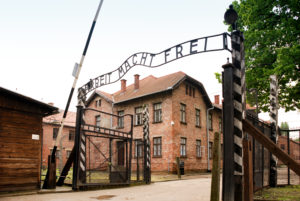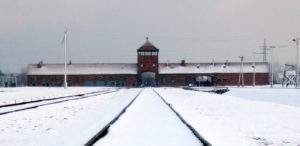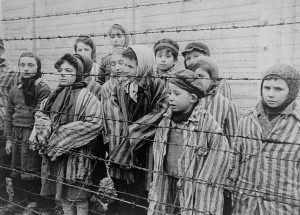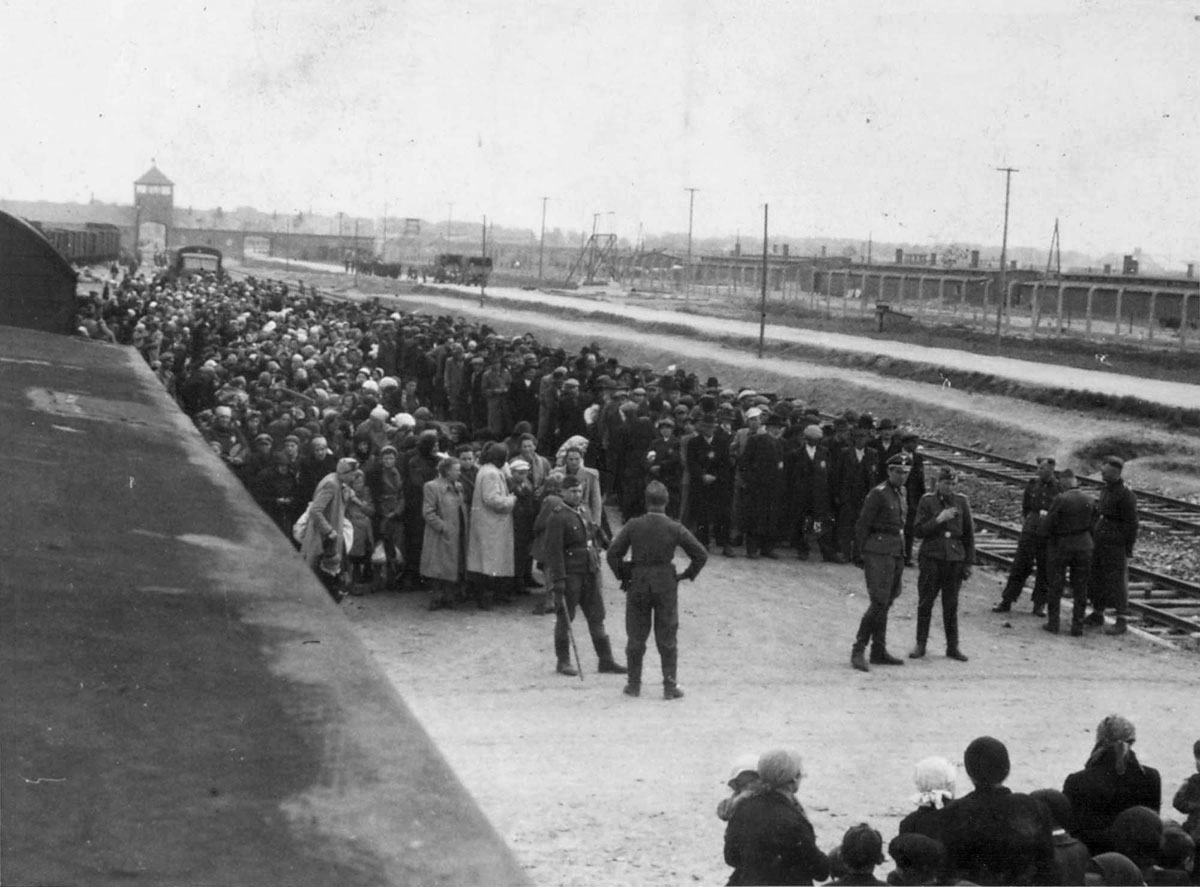Auschwitz-Birkenau is the world’s largest Jewish, Polish and Roma cemetery. This is neither rhetoric nor poetry. For centuries, the earth will continue to hide here the ashes from the crematoria and bits of unburnt bones. It will be saturated with human blood and fat. Literally.
by Marek Zając
That’s how one should see it. This is how it should be remembered. Precisely so – until it hurts. Without cheap slogans and ritual moralizing. We constantly have to make an effort to look deep into the heart of darkness and keep asking about the meaning and limits of our humanity – even if it hurts and does not allow us to sink into comforting dreams about a new wonderful world.

Polish political prisoner Adolf Gawalewicz, in his book Reflections in the Gas Chamber’s Waiting Room: From the Memoirs of a Muselmann, recalls how, he was sent for treatment after the war to a sanatorium in Sweden. At the pier in Gothenburg, Red Cross nurses took care of these exhausted ones. Beautiful, smiling and warm – real angels. One of them leaned over Gawalewicz lying on a stretcher: ‘Life can be beautiful, can’t it, there are a lot of good, helpful, kind people in the world.’
After a moment of reflection, former prisoner number 9225 replied: ‘You say so, because it behooves you, that this is what one needs to tell people in my situation. But let’s assume only theoretically that we close a hundred good people like you or maybe even better ones – if they exist – in a freight wagon for eight days and give them nothing to eat and not a drop of water to drink, I repeat: not a drop of water. On the ninth day, we can arrange, at least with those who leave that wagon alive, a discussion group on good-natured people. They will be already more or less prepared to talk on the subject.’
Yes – first of all, we should go further and delve into the testimonies of former prisoners and Holocaust survivors. That is why a few years ago the International Auschwitz Council decided that during the round anniversary of the liberation of KL Auschwitz, their voices must be the most important. That is why during this year’s celebrations no politician will speak – apart from the President of the Republic of Poland welcoming those gathered here as the host. On this day, everyone – beginning with world leaders – should humbly and silently hear those who have gone through hell on earth.

Maybe they take seriously the words of Henryk Mandelbaum, deported to the camp from the Będzin Ghetto in 1944. He was forced to work by the Germans in Sonderkommando. He had to burn gassed bodies in the pits around gas chamber and Crematorium V in Birkenau: ‘Head, legs and arms burned quickly, but the torso and thighs remained. It’s like a tree – first the branches are burning and the trunk smolders slowly. Fat that did not burn down it leaked down the grooves to pits. One had to take this fat with small pots and pour it onto the pile. So in the pits the dead were being fried rather than burned. For the intestines, liver or heart to burn, the temperature must be right.’
And it was Mandelbaum who said honest and simple words before his death in June 2008: ‘Leaders of the whole world should sit down to one big table and get along finally. Does a normal person need a tank, a plane, a rocket? And all this costs money. It takes just a few years and it all wears out, one has to replace it with new stuff. All these small wars and terrorism don’t solve anything. There is a lot of space on earth and people should work together, not kill. All mothers give birth to their children in the same way and not in order to send them to wars.’
Sounds pathetic and naive? Not in the mouth of a man who had to put his hands in the warm fat dripping from the burned bodies of children, women and men.
The message of former prisoners and Holocaust survivors is to remember the victims and draw conclusions for the future. When sometimes I am asked why one needs to come to Auschwitz-Birkenau – I answer: I don’t care if people are crying here. These are emotions. Generally these are noble emotions, but emotions quickly pass. What is much more important is the feeling of responsibility which should arise in a person visiting a former camp. Not for the crimes of several decades ago, but for the world here and now. For myself and for others. What to do then? Let everyone answer according to their own measure.

Auschwitz-Birkenau must remain an unhealed wound. This is the will of former prisoners and Holocaust survivors. Over the years, they have done everything to preserve the authenticity of this place. To keep its holy space away from politics and propaganda. Its history and suffering should not be exploited, but should educate and shape future generations wisely. The survivors showed us that the memories of individual nations do not have to compete or exclude each other, but they should be complementary and reinforced – Jewish, Polish and Roma memory. The memory of Soviet prisoners of war and the victims from many other nations.
The Last Witnesses slowly leave us. The world is shaking again. The great leaders of this world play on the graves of those murdered in political games. Is there still hope? There is. As long as we get the courage and look deep into the heart of darkness of Auschwitz-Birkenau.
Author: Marek Zając – served as the secretary of the International Auschwitz Council for 12 years. He is currently the chairman of the Auschwitz-Birkenau Foundation Council.
Translation: Alicja Rose & Jessica Sirotin





